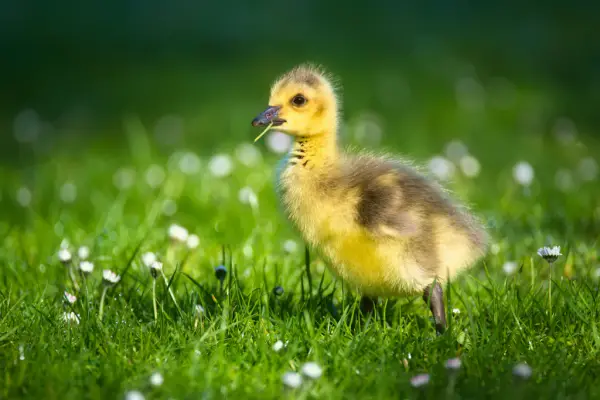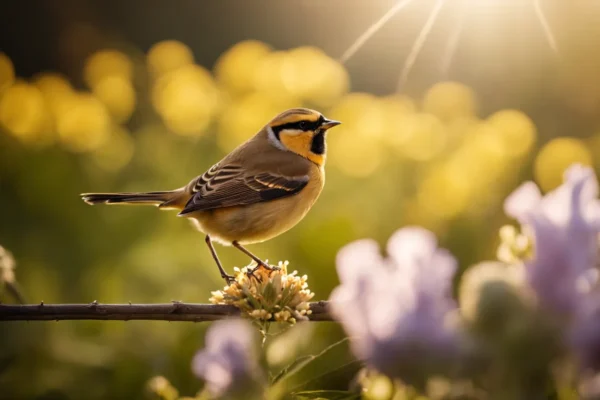If you have a pet bird, you may be concerned about your saliva’s potential to do damage if it were to kiss it. Are the more than 10,000 species of birds that inhabit the world poisoned by human spit?
This thorough book explores biohazards, discusses the scientific literature, and offers advice on how to deal with birds and saliva in a safer manner.
The simple answer is that, while it carries the potential of disease transmission, human saliva is typically not hazardous to most birds in modest doses. More damage might result from a larger exposure in delicate species.
This article, which is around 3000 words long, will examine the elements of human saliva, highlight illnesses that might affect birds, examine potential poisons, talk about the impacts on various species, and provide best practices for those who own and care for birds.
To learn more about the danger of human spit to birds, continue reading.
Human Saliva’s Composition
Saliva is an amazing fluid found in humans that is essential to our digestion and dental health. It is a complicated combination mostly made up of electrolytes, water, and enzymes. Together, these elements aid in the process of breaking down food particles during chewing and swallowing.
Saliva is produced daily by the normal individual in the range of one to two liters, and it is necessary to keep the mouth environment healthy.
Enzymes, electrolytes, and water
Water makes up around 99% of saliva’s makeup, making it its primary constituent. This high water content facilitates the lubricating of food while chewing and swallowing and keeps our lips wet.
Additionally, saliva includes a number of enzymes that are involved in the breakdown of lipids and carbohydrates, respectively, including lipase and amylase. Saliva also contains electrolytes, such as calcium, potassium, and sodium, which help to keep the ion balance in our mouths balanced.
Possible irritants and poisons
Although human saliva is usually safe for humans to consume, it’s vital to remember that some of the compounds in it may be poisonous or unpleasant to other species, especially birds. For instance, if someone has just eaten any of the toxic plants, the poisons may be present in their saliva.
If birds come into touch with these pollutants, it might be dangerous for them. It’s crucial to keep in mind that these toxins normally have minimal concentrations in human saliva and would need to be directly exposed in order to have any noticeable negative effects.
Bacteria and viruses that cause disease
The possible spread of germs and viruses that cause illness is another factor to take into account when it comes to human saliva and birds. Although it is uncommon, illnesses may still be spread from people to birds via saliva.
Saliva may be used to spread some viral and bacterial illnesses, including influenza and streptococcus. In order to lower the danger of illness transmission, even if the possibility of transmission is normally minimal, it is crucial to maintain proper cleanliness and stay away from direct contact with wild birds.
It is important to note that, in comparison to humans, birds have evolved to have distinct immune systems and digestive systems. As such, what could be innocuous for us might not be the same for others. To reduce any possible hazards, it is usually advisable to prevent direct contact between human saliva and birds.
Visit the Cornell Lab of Ornithology or the Audubon Society for further information on bird health and the possible effects of human spit.
Diseases That Can Affect Birds and Humans
Even though birds have a distinct set of illnesses, it’s crucial to remember that certain illnesses may spread from people to birds. Direct touch or exposure to contaminated materials or surfaces causes this.
The following are some typical illnesses that people may spread to birds:
Bacterial Diseases
Salmonellosis is one bacterial illness that may spread to birds. Human excrement from infected individuals contains a type of bacteria known as Salmonella, which is the cause of this disease. Birds may get salmonellosis by direct contact with diseased persons or by ingesting contaminated food or water.
While not all birds are susceptible to this virus, certain species, such as pigeons and parrots, are more vulnerable than others.
Infections caused by viruses
A viral illness that may spread from people to birds is influenza. Although human-to-bird transmission is the most common mode of transmission, human-to-bird transmission has also been documented.
This is a problem, particularly when people are in close proximity to diseased birds or their secretions.
Fungus-related infections
A fungus called aspergillosis may infect both people and birds. The fungus Aspergillus, which is frequently found in the environment, is the source of this infection. Aspergillosis can be transmitted to birds by contaminated food, water, or spores in the air.
Humans may unintentionally bring the fungus into the surroundings of birds, which can cause infection.
Parasitic Diseases
It is feasible for humans to unintentionally give birds parasitic infections. This can happen when parasites like fleas, lice, or mites are transferred from people to birds. These parasites can make birds uncomfortable and sick, which lowers their general well-being.
To protect the health and welfare of our feathered companions, it is imperative that diseases that infect humans do not spread to birds. Maintaining proper hygiene is crucial, which includes washing your hands well before handling birds and avoiding close contact with sick or contagious illness-symptomatic individuals.
Reducing the risk of disease transmission in birds can also be achieved by providing a clean and safe environment and by scheduling routine veterinary examinations.
You can visit the CDC or WHO for more information on illnesses that can transfer from people to birds.
Saliva Exposure’s Effects on Various Bird Species
Birds are amazing animals with distinct physiological makeup. I find it interesting when people wonder if human saliva is poisonous to birds. Although different bird species may react differently to human saliva, it is generally not advised to expose birds to human saliva.
Let’s examine more closely at how exposure to saliva affects various bird species.
Parakeets and Parrots
The colorful feathers and perceptive behavior of parrots and parakeets are well known. These birds are prone to respiratory infections because of their delicate respiratory systems. Bacteria found in human saliva may be dangerous to these birds.
Furthermore, the sensitive balance of the bird’s digestive system may be upset by the enzymes in human saliva. Consequently, it is advisable to keep these birds and human saliva away from one another.
Canaries and Finches
Small birds with colorful plumage and melodic songs are finches and canaries. These birds, like parakeets and parrots, have a delicate respiratory system. Respiratory problems may arise from exposure to human saliva, which may introduce harmful bacteria or viruses into the respiratory system.
When working with these birds, it is important to practice good hygiene and to keep your hands away from their saliva.
Ducks and Chickens
Commonly domesticated birds are chickens and waterfowl, which includes ducks and geese. These birds, as opposed to canaries, parakeets, parrots, and finches, have stronger immune systems. It is still advisable to limit any exposure to human saliva, even though their immune systems are capable of handling some degree of bacteria.
Hand washing before handling these birds is one example of good hygiene practices that can help ward off any potential health problems.
Untamed birds
There are many different species of wild birds, each with special traits and adaptations. These birds are regularly exposed to a variety of environmental elements, such as bacteria and viruses.
Even though wild birds have evolved defenses against these microbes, it’s still advisable to keep your distance from human saliva whenever possible. It is safer to provide clean water sources and appropriate food to wild birds than to approach them directly.
It is noteworthy that, despite the lack of specific research, it is always advisable to err on the side of caution when it comes to the toxicity of human saliva to birds. To protect the birds’ health, it is advised to keep human saliva away from them when interacting with any species of bird.
Advice and Precautions for Bird Owners: Steer clear of direct mouth-to-beak contact.
Though it might be alluring to give your feathered companion a quick peck on the beak, it’s crucial to keep in mind that human saliva may be hazardous to birds. Certain bacteria found in human saliva can be poisonous to birds and cause major health problems.
Consequently, it’s best to keep your pet bird away from direct mouth-to-beak contact. Instead, give treats or give soft touches to express your affection.
Never share food or beverages.
While giving your pet bird food or drink may seem like a good idea, doing so can actually be very dangerous. Birds’ digestive systems are not made to process the same foods as humans’, and they have different nutritional needs.
Some human foods, like chocolate, coffee, and avocado, can be poisonous to birds. Giving your bird a diet that is tailored to their species and is well-balanced is crucial. For advice on the right diet for your feathered companion, speak with your veterinarian.
Cleanse any bite or wound right away.
If, by chance, your bird bites you or causes you harm, you must clean and disinfect the wound right away. Birds’ beaks can harbor bacteria, and if an infection is not treated, it can happen. To avoid any complications, thoroughly clean the wound with soap and water and apply an antiseptic.
Seek medical assistance right away if the wound appears serious or exhibits symptoms of infection.
Keep an eye out for symptoms of the disease
It is imperative that you regularly check on your pet’s health as a responsible bird owner. It is important to monitor any changes in a bird’s behavior, appetite, or physical appearance because birds are adept at concealing illness.
Contact your avian veterinarian as soon as possible if you observe any unusual symptoms, such as lethargy, loss of appetite, unusual feather plucking, or respiratory distress. The likelihood of a successful outcome can be significantly increased by early detection and timely treatment.
You can visit reliable websites like The Spruce Pets or the American Veterinary Medical Association for more in-depth information on bird care and safety measures. It’s important to keep in mind that giving your feathered friend a secure environment and following the right safety procedures will enhance their general wellbeing.
Commonly Asked Questions
What if I get bit by my bird and it draws blood?
In the event that your bird bites you and bleeds, you should clean the wound well and use an antiseptic. Although certain bacteria are present in bird saliva, there is typically little chance of infection from bird bites.
Nonetheless, it’s a good idea to keep an eye out for any infection-related symptoms, like redness, swelling, or pus. It’s best to get medical help if you experience any worrisome symptoms.
Are other animals’ salivaries harmful as well?
Although the main topic of this article is the possible toxicity of human saliva to birds, it’s important to note that certain animal saliva can also be detrimental to birds. For instance, bacteria that are harmful to birds can be found in the saliva of some mammals, like cats.
Consequently, it’s crucial to use caution and, if required, to keep different species apart when introducing them to one another.
How else might people infect birds with disease?
Apart from saliva, there are alternative ways in which humans can infect birds with diseases. Using hands or objects contaminated with germs is one typical method. For instance, handling a healthy bird without thoroughly cleaning one’s hands after coming into contact with sick birds or their droppings can spread disease.
Similarly, items like bird feeders and cages can become a source of contamination if they are not routinely cleaned and disinfected. It’s critical that bird owners maintain proper hygiene and take the necessary precautions to stop the spread of illness.
Final Thoughts
Despite the fact that human saliva is not extremely toxic, bird handlers and owners should limit direct mouth contact to prevent illness transmission. We can safely interact with our feathered friends without putting them in danger by exposing them to our spit by taking a few simple precautions.




![Birds That Sound Like Horses [Images and Ids]](https://birdsology.com/wp-content/uploads/2024/01/14703.webp-600x400.webp)

